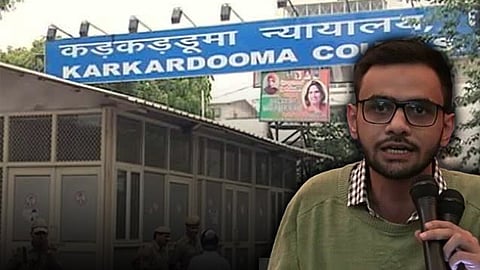
- News
- Columns
- Interviews
- Law Firms
- Apprentice Lawyer
- Legal Jobs
- हिंदी
- ಕನ್ನಡ

Speaking up for a minority community when they are mistreated doesn’t make Umar Khalid communal, his counsel argued on Wednesday seeking bail in an Unlawful Activities (Prevention) Act case connected to the Delhi Riots [Umar Khalid v. State].